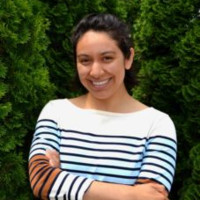Jessica Martinez

It is commonplace knowledge that entrepreneurship and innovation thrive when networks intersect and knowledge spillover is encouraged. Yet, there is a perpetual myth that creativity is something that can only be achieved in big cities and never in rural areas. In a 2017 study, the National Endowment for the Arts found that while art and cultural centers tend to concentrate in high-density urban cores, rural arts organizations tend to draw non-local audiences at higher rates than do urban arts organizations. As the country continues to recognize the importance of transformative develop through creative methods, leaders must learn to acknowledge and incorporate the synergy of existing creative minds across rural America.
This summer, interning for McClure Engineering Company (MEC), I gained first-hand experience in rural revitalization through creative placemaking. Placemaking is a people-centered approach to building strong, vibrant communities. It helps communities achieve economic and population growth through cultural and entrepreneurial amenities, concepts, and catalytic projects. The MEC placemaking team worked to learn a community’s needs, helped address their challenges, and provided a comprehensive strategy to move the vision forward, strategically engaging partners when and where their expertise was needed.
During my internship, I worked closely with the Principal and Vice Principal community planners at MEC to assist with ongoing placemaking projects throughout rural Iowa. The process would include meeting with city leaders, engaging local residents through visioning sessions, and providing tangible business plans for catalytic amenities. I also had the pleasure of exercising my knowledge of multi-modal systems in transportation brainstorming projects with the MEC transportation team. These projects allowed me to witness how non-government specialists, like MEC, can provide foundational technical and capital resources to cities for transformational development.
Ultimately, I learned that there aren’t many differences between rural and urban– everyone wants to work, everyone wants a good quality of life, and everyone wants to watch their children grow and succeed. I am grateful for the diligent guidance MEC provided me throughout the summer and value the diverse lessons learned.